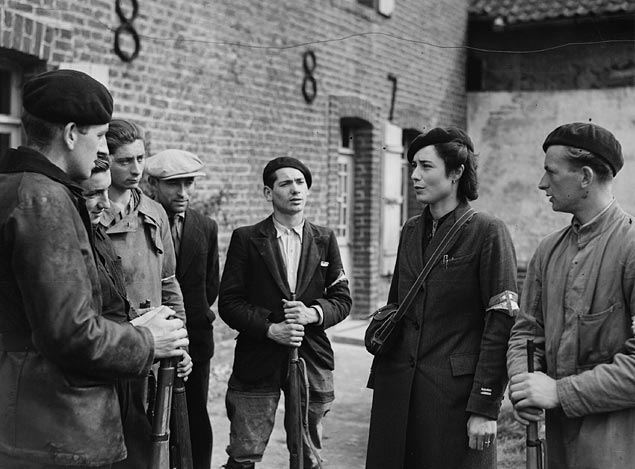
maquis or Ma·quis [mah-kee, ma-; French ma-kee] ExamplesWord Origin noun, plural ma·quis [mah-keez, ma-; French ma-kee] /mɑˈkiz, mæ-; French maˈki/.
- the French underground movement, or Resistance, that combatted the Nazis in World War II.
- Also called maquisard. a member of this movement.
Origin of maquis 1940–45; French, special use of maquis, makis wild, bushy land Italian (Corsican dial.) macchie (with French -is for -ie), plural of macchia a thicket Latin macula spot maqui [mah-kee] noun
- an evergreen shrub, Aristotelia chilensis, of Chile, having toothed, oblong leaves, greenish-white flowers, and purple berries, grown as an ornamental in S California.
Origin of maqui 1695–1705; Spanish Araucanian Examples from the Web for maquis Historical Examples of maquis
“My future sister-in-law doesn’t like the maquis,” laughed Colomba.
Prosper Merimee
You must get on his back, and come with me to the Stazzona maquis.
Prosper Merimee
A dog ran out of the maquis, and when the girl called out “Brusco!”
Prosper Merimee
I had a guide with me, for fear I should lose my way in the maquis.
Alexandre Dumas
The Maquis took advantage of the silence which followed Vincent’s criticism to rise from table.
Edward Bulwer-Lytton
British Dictionary definitions for maquis maquis noun plural -quis (-ˈkiː)
- shrubby mostly evergreen vegetation found in coastal regions of the Mediterranean: includes myrtles, heaths, arbutus, cork oak, and ilex
- (often capital)
- the French underground movement that fought against the German occupying forces in World War II
- a member of this movement
Word Origin for maquis C20: from French, from Italian macchia thicket, from Latin macula spot Word Origin and History for maquis n.
1858, from French maquis “undergrowth, shrub,” especially in reference to the dense scrub of certain Mediterranean coastal regions, long the haunts of outlaws and fugitives, from Corsican Italian macchia “spot,” from Latin macula “spot, stain;” the landscapes so called from their mottled appearance. Used figuratively of French resistance in World War II (1943). A member is a maquisard.
 Liberal Dictionary English Dictionary
Liberal Dictionary English Dictionary